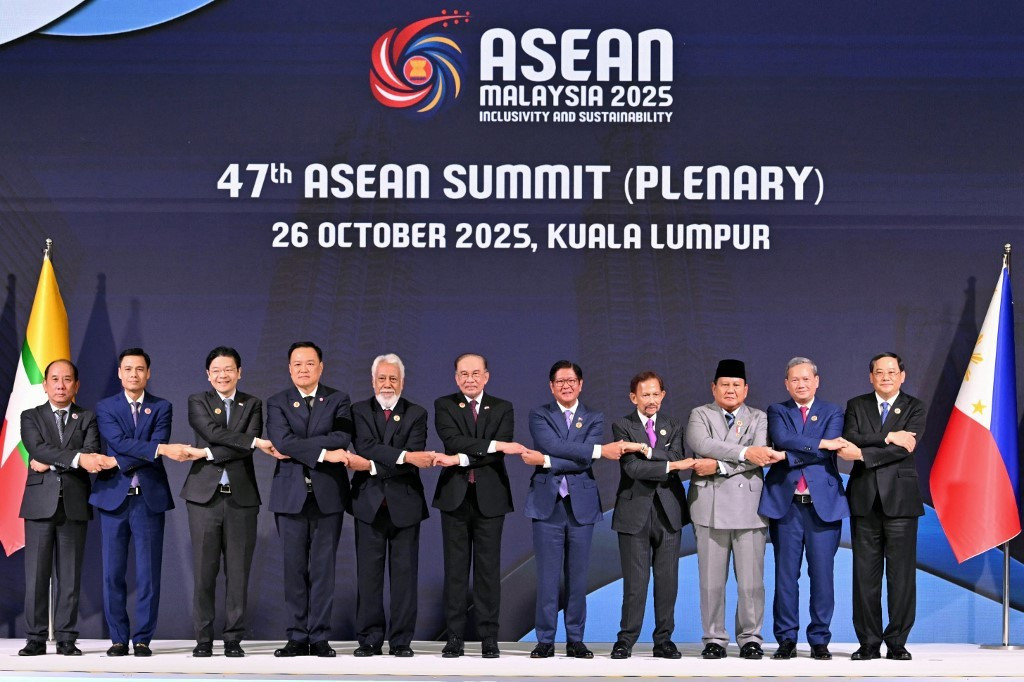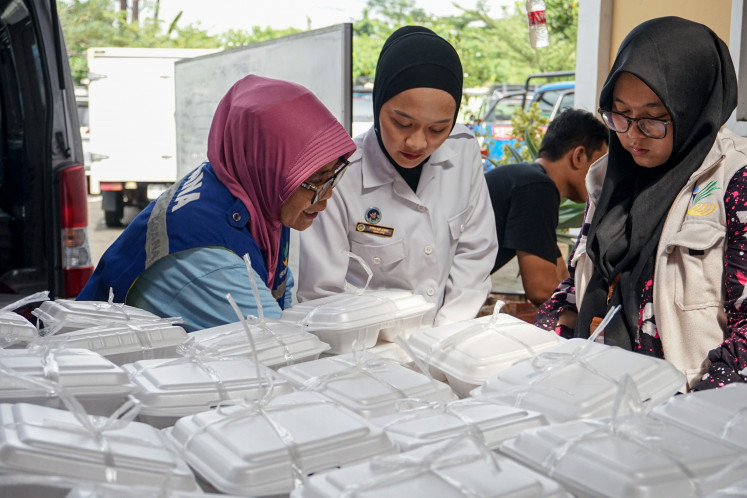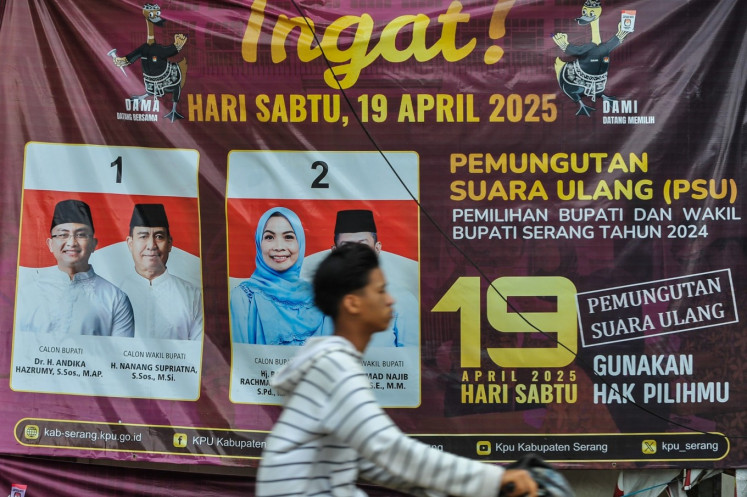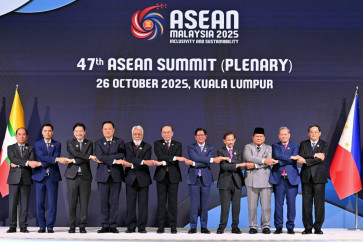Popular Reads
Top Results
Can't find what you're looking for?
View all search resultsPopular Reads
Top Results
Can't find what you're looking for?
View all search resultsAnalysis: Timor-Leste joins the ASEAN club, with Prabowo's signature
Change text size
Gift Premium Articles
to Anyone
 Malaysia's Prime Minister Anwar Ibrahim (center) holds hands with (from left to right) Myanmar's Permanent Secretary of the Ministry of Foreign Affairs Hau Khan Sum, Vietnam's Deputy Minister of Foreign Affairs Dang Hoang Giang, Singapore's Prime Minister Lawrence Wong, Thailand's Prime Minister Anutin Charnvirakul, Timor Leste's Prime Minister Xanana Gusmao, Philippines' President Ferdinand Marcos Jr, Sultan of Brunei Hassanal Bolkiah, Indonesia's President Prabowo Subianto, Cambodia's Prime Minister Hun Manet and Laos' Prime Minister Sonexay Siphandone during a group photo as they attend the plenary session of the 47th Association of Southeast Asian Nations (ASEAN) Summit in Kuala Lumpur on October 26, 2025. (AFP/Arif Kartono)
Malaysia's Prime Minister Anwar Ibrahim (center) holds hands with (from left to right) Myanmar's Permanent Secretary of the Ministry of Foreign Affairs Hau Khan Sum, Vietnam's Deputy Minister of Foreign Affairs Dang Hoang Giang, Singapore's Prime Minister Lawrence Wong, Thailand's Prime Minister Anutin Charnvirakul, Timor Leste's Prime Minister Xanana Gusmao, Philippines' President Ferdinand Marcos Jr, Sultan of Brunei Hassanal Bolkiah, Indonesia's President Prabowo Subianto, Cambodia's Prime Minister Hun Manet and Laos' Prime Minister Sonexay Siphandone during a group photo as they attend the plenary session of the 47th Association of Southeast Asian Nations (ASEAN) Summit in Kuala Lumpur on October 26, 2025. (AFP/Arif Kartono)
T
imor-Leste formally joined the Association of Southeast Asian Nations (ASEAN) during the group's summit in Kuala Lumpur, after a long wait, thanks in no small measure to the tireless support of Indonesia, which once brutally occupied the tiny territory.
Indonesia's President Prabowo Subianto, who has a checkered military past which included tours of duty in East Timor (as Timor-Leste was previously known), was one of the 10 ASEAN leaders who signed the declaration of admission of Timor-Leste.
Indonesia has been the primary supporter for Timor-Leste's admission, perhaps more out of a sense of guilt rather than any real strategic value, but since ASEAN moves by consensus, it has taken 14 years to get the entire bloc's approval. Some member states had expressed concerns that the economically undeveloped nation would slow down the move toward an ASEAN community.
Indonesia invaded East Timor, formerly a Portuguese colony, in 1975 with the encouragement of the United States, which feared a domino effect in Southeast Asia after losing the Vietnam War to the communist north.
For the next 24 years, East Timor became a huge project for the Indonesian Military (TNI), which brutally occupied and administered the territory, until the violent separation of 1999.
The two countries quickly buried the hatchet post-separation, setting up the "Truth and Friendship Commission" in 2005 to investigate violence surrounding the 1999 United Nations-held referendum, but agreeing from the start that there would be no legal consequences. The past was forgiven, though not forgotten.
This move also helped to counter or mitigate the impact of the UN Special Panel for Serious Crimes investigation, which indicted several TNI officers for their involvement in crimes against humanity.


















